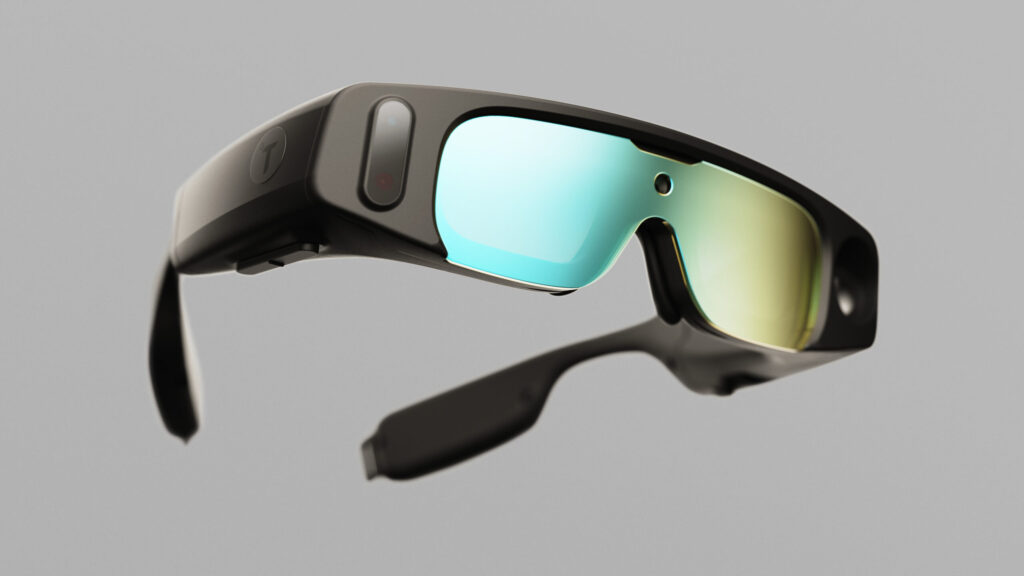
Audience
- Sentiment: Neutral
- Political Group: Moderate/Neutral
- Age Group: 18-34
- Gender: Both
Overview
- Apple is pausing its AR glasses development, delaying potential entry into the market by 3 to 5 years.
- Challenges with initial AR models highlight broader issues in the tech industry, emphasizing the need for practical and effective devices.
- Apple is shifting focus to other projects like the new iPhone SE 4, aiming to attract younger consumers with a value-oriented offering.
Apple’s Rollercoaster Ride: What’s Happening with Their AR Glasses?
When you think about technology, it’s hard not to think of Apple. Whether it’s the latest iPhone, the iPad, or the innovative Watch, Apple seems to have its fingers in many technological pies. However, in recent news, Apple is taking a step back from its ambitious plans for augmented reality (AR) glasses. And when I say “step back,” I really mean it. According to Bloomberg’s Mark Gurman, Apple has decided to hit pause on its short-term plans to compete with Meta’s AI-enhanced smart glasses, which are codenamed N107. So what exactly does this mean for tech lovers and Apple fans alike? Let’s dive in!
What Happened to Apple’s AR Glasses?
First, let’s break down what AR glasses are and why they’ve been so exciting to tech enthusiasts. Augmented reality, or AR, is a technology that overlays digital information—like images, sounds, or even GPS data—onto the real world. Imagine walking down the street, and your glasses can display directions, tell you about landmarks, or even show you your social media notifications without looking at your phone. Sounds amazing, right? That’s the kind of future Apple had in mind with their AR glasses, but things haven’t quite gone according to plan.
In the beginning, there was a lot of buzz surrounding Apple’s potential entry into the AR glasses market. Apple’s Vision Group, led by John Ternus, was hard at work developing glasses that could rival those emerging from companies like Meta (formerly Facebook), Samsung, and others. However, initial tests didn’t go as well as Apple had hoped. Reports indicate that the early models didn’t perform well, which can be a massive blow for a company that prides itself on its innovative technology.
Apple is notorious for not rushing products to market. Unlike some companies that might slap a product together and see how it does, Apple prefers to take its time and make sure that its offerings are shiny, polished, and ready to impress. After all, who wants to be the company that flops? With this in mind, Ternus decided to avoid another failure and pivot away from the immediate development of AR glasses.
What Does This Mean for the Future?
So where does this leave us? According to Gurman, we could be waiting three to five years for any fresh AR glasses from Apple. That’s quite a stretch of time in tech years, where new devices can feel ancient in just a few months. Meanwhile, competitors like Samsung and Meta are planning to launch new smart glasses technology this year! This setback means that Apple might miss out on a key opportunity to establish itself in the AR market when the competition starts heating up.
Why does this matter? For one thing, AR glasses could change the way we interact with the world. Imagine getting rid of that annoying habit of pulling out your phone every time you get a notification. Instead, you could glance at your glasses, see what’s important, and keep moving. Yet, with Apple’s delay, they could risk falling behind in this transformative technology.
But it’s not just about being in the race; it’s about leading it. Apple is known for its premium design and user experience. If they can eventually deliver AR glasses that live up to their reputation, it could create a whole new category of tech that enhances our daily lives in ways we can’t even fully envision yet.
Challenges in the Tech Industry
It’s also worth noting that Apple’s struggle with AR glasses highlights a broader issue in the tech industry. The Vision Pro, Apple’s recently launched headset, has faced its own challenges, particularly related to battery life. Smartphones have set such high expectations for what portable devices can do that anything less feels inadequate. When people think of smart glasses, they often imagine something that could seamlessly act as an extension of their phones or laptops. Unfortunately, many current products in the market are often seen as “secondary screens” – lacking the capabilities we’ve come to expect.
This speaks to a larger challenge that tech companies face: creating devices that are not only innovative but also practical and effective. Many consumers are picky, and if a product doesn’t meet expectations, it can quickly be labeled a failure. Just look at how quickly social media went from being excited about virtual reality to groaning about VR headsets collecting dust in the corners of rooms.
Apple’s Shifting Strategies
With the AR glasses dreams temporarily shelved, Apple appears to be preparing to shift its focus to other projects. Gurman has hinted that we might see the new iPhone SE 4 being launched soon. This phone is shaping up to be quite interesting as it’s rumored to include Face ID technology and could retail around $500. This price point suggests that Apple is trying to appeal to a broader range of customers, especially younger users or those who are looking for value without sacrificing quality.
The decision to concentrate on new iPhone models rather than AR glasses points to a more cautious approach in strategy. It’s almost as if Apple is saying, “Let’s do what we’ve always done well—make amazing smartphones—before diving into uncharted territory.” This perspective can resonate with many people. Change is exciting, but there’s also something comforting about sticking to the classics, especially when they’re done well.
Looking Ahead
While it may seem like Apple is taking a step back, the company’s decision can also be seen as strategic—an opportunity to assess the competitive landscape and develop a product that can truly shine rather than rushing something to market that could flop. This kind of patience can eventually lead to the creation of something exceptional.
So, what does the future hold for us? It’s challenging to say definitively. As of now, the tech industry is fast-moving, and trends can shift in the blink of an eye. Companies will continue to innovate, consumers will continue to want more, and who knows? Apple might rise to the occasion, returning to the AR scene with something game-changing.
Your Turn!
As we stand on the brink of new technology, it’s fascinating to think about where we’re headed. Do you think Apple is making the right move by waiting to release its AR glasses? Or do you believe they should have taken the plunge, even with the risks involved? Share your thoughts in the comments below! I’m eager to hear what you all think about the state of technology and what you hope to see from Apple in the future!






